Key Takeaways
- “Greens supplements” are blends of nutritious plants that are designed to supplement a diet that’s low in fruits and vegetables.
- There’s very little scientific research behind most greens supplements. Instead, people buy them because they just assume they’re good for you.
- There are a few compounds and herbs you can find in these supplements that are proven to improve your health but, for the most part, greens supplements are uninteresting and unappetizing salad replacements.
“Superfoods,” “greens supplements,” “veggie blends;” lots of ways to refer to a simple dehydrated mix of plant powder.
There’s quite a bit of confusion around these supplements, and you probably have quite a few questions yourself, such as:
Do you need to take greens supplements even if you eat veggies?
Are some greens supplements better than others, or are they all pretty much the same?
Are they as healthy as everyone seems to think?
Why do people even take them?
I personally find this category of supplements one of the most vital, yet one of the most confusing, mostly because of that last question; why would you even want to take these things?
Time and time again, many companies never offer a convincing pitch for why they’re worthwhile. I like to think optimistically but, at the end of the day, it’s likely because people are easily duped into buying things based on vague, fantastic claims of better health and more energy.
Hopefully, in this article, I can tell you a bit more about this surprisingly deceitful section of supplements and how, if you want benefits from greens supplements, the label matters and which things you should look for.
(If you’d prefer to skip all of the scientific mumbo jumbo, though, and you just want to know which greens supplement you should take to feel healthy, happy, and full of energy, no problem! Just take the Legion Supplement Finder Quiz, and in less than a minute, you’ll know exactly what supplements are right for you. Click here to check it out.)
- What Are Greens Supplements?
- Why Do People Buy Greens Supplements?
- Why Should We Use Greens Supplements?
- The Best 3 Greens Supplements
- The Worst 3 Greens Supplements
- Are Greens Supplements Safe?
- What Should I Avoid When Buying Greens Supplements?
- The Bottom Line on Greens Supplements
Table of Contents
+What Are Greens Supplements?
Greens supplements, also called vegetable extracts or “superfoods” (ugh), are supplements that are usually dehydrated vegetables and things similar to them.
Initially starting out as vegetables, they’ve taken on a new sort of role where many “greens supplements” are just vessels for the latest and greatest fruit or herb that people are looking for. I think recently it’s Camu camu or something like that?
They often include ingredients like…
- Fruits like acai and blueberry
- Algae like chlorella and spirulina
- Mushrooms like reishi and turkey tail
- And probiotics of the lactobacillus and acidophilus type
They also contain things that also follow the “vegetable motif” of consuming it because a smart person told you to and you don’t question them. You know, like probiotics! They’re in a lot of products and nobody really knows why you need them but everybody knows that you do need them.
That sort of thing.
Why Do People Buy Greens Supplements?
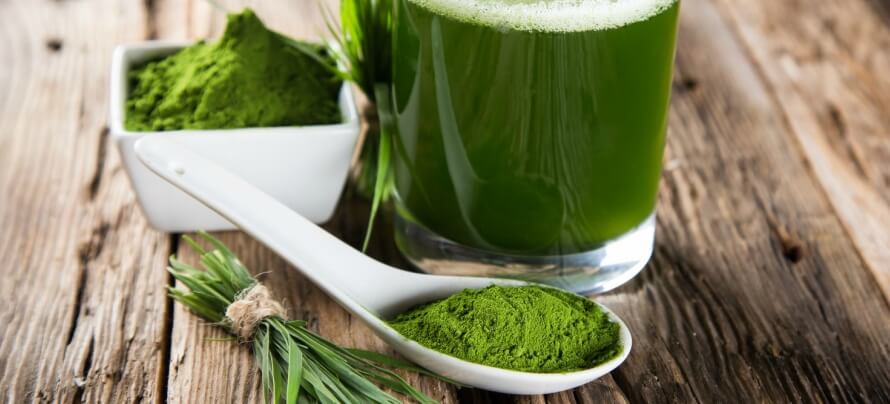
The reasons that people seek out greens supplements are pretty over the map. There is a lot of confusion about why we would want to take these supplements, if they’re necessary, if they’re worth the cost; etc.
I think this is mostly due to how we all view vegetables. We’re told to eat veggies “because they’re good for you” without any further scientific elaboration. If we’re supposed to take that on faith, and when you’re offered powdered vegetables, of course we’re gonna take that on faith as well!
To some people greens have reached a level of necessity similar to multivitamins; you don’t take them for a reason, you just take them… because.
It’s not the best state to be in but, eh, what can you do?
Beyond the consumers who take greens “because they’re green” there are a lot of places that conflate the benefits of vegetables with the benefits of these vegetable supplements.
It’s reasonable to see why. After all, these supplements are just dehydrated veggies (without the fiber) and similar stuff, but associations seen in large scale epidemiological evidence is not the same as a claim that can be applied to a powder.
For example, the fact that vegetable and fruit intake is associated with reduced all cause mortality is not really evidence that “our vegetable powder will save your life.”
Regardless, greens supplements are claimed to do everything under the sun from reducing the risk of most diseases associated with lifestyle (obesity, metabolic syndrome, cardiovascular disease), improving immune function, reducing oxidation, and reducing the risk of cancer.
Furthermore, they seem to be relatively close to the “dark side” of supplements: the homeopaths and pseudoscientists who bring us great shame to be associated with. Due to this, greens supplements are also at times claimed to “reduce pH” or “restore REDOX balance” (do people just see acronyms and think they can plop them anywhere?).
But they’re just veggies, my brosephs and brosephinas. Veggies are nice but still…
Why Should We Use Greens Supplements?
Honestly, there’s never a reason that you need to use a greens supplement. Hell, I can’t even think of a blanket statement that would help direct you to use a greens supplement.
If you want to build muscle, use a muscle building supplement.
If you want to lose fat, use a fat loss supplement.
If you want… umm… something… use a greens supplement?
There is really no reason, outright, why we would ever want to use a greens supplement.
That is, unless, you looked at the label and said “oh cool, that’s a bunch of stuff that I want in my body for some reason or another and they all happen to be put together into one convenient supplement.”
Maybe you heard a bunch of good things about sulforaphane in broccoli extract, or about resveratrol in grapes and wine. You could go out and buy supplements containing just them but, what if there was a supplement that had many of these ingredients in it?
That is, at least in my mind, what a greens supplement is; or at least the only self-respecting thing it could be. An excuse to get some beneficial and interesting compounds into your body that you would otherwise not consume in your diet or would cost more money to buy them by themselves.
Or in short, greens supplements are just an excuse to get some goodies in your body to experiment with in the hopes of feeling a tad better.
Scientifically speaking we don’t have much evidence on “greens supplements” themselves, and formulations change too drastically from one company to the next to compare them all directly. All we can do is look at the individual components in the supplements and see how they rank up.
A greens supplement that has good doses of the best compounds? Great—that’s honest and simple and lets you get these goodies in at known doses.
A greens supplement that has a proprietary blend and hides the bioactives behind labels and filler? Wow, thanks for the deception bud, I wanted something FOR my headache not something to give me a second one.
Greens supplements are, like all supplements, only as good as the sum of their parts. This requires disclosure, a good label, and scientific support.
So, what ingredients should you be looking for?
Let’s go over the best and worst three.
The Best 3 Greens Supplements
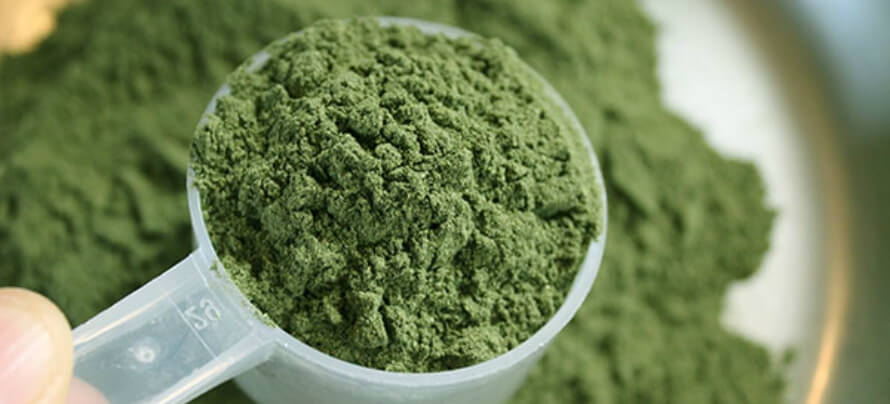
The supplements that appear in this section are those that, while commonly seen in greens supplements and products, are just generally good things to put in your mouth. Compounds that have a low chance of being “filler” in the product.
Spirulina
Spirulina is my baby. Back when I first started researching it, I just assumed that anything that was green and associated with hippies was a mistake but… I was mistaken.
Spirulina is a blue-green algae that has a long history of safe use, which is weird to say since blue-green algae normally give you a slight case of a severely painful death. The toxins that blue-green algae make, microcystins, are oddly absent from spirulina and it’s produced en masse to great benefit.
Hell, it’s even been explored as a potential protein source for famine-stricken third world countries. If starved children stricken with Kwashiorkor can handle spirulina then you sure as heck can!
Supplementing spirulina is hypothesized to mimic Gilbert’s Syndrome, a genetic disorder of elevated bilirubin in the blood, which is associated with such horrible side effects such as increased longevity, lower risk of diabetes, lower risk of obesity, improved cognition during aging, and such. Oh the humanity.
But more to the point of benefits, spirulina contains a group of immunostimulants called Braun proteins and also a very interesting molecule known as C-phycocyanin. C-phycocyanin is seen as the main component of spirulina and is a bile acid mimetic. This means that we have a reason to believe that it can mimic the horrible syndrome of Gilbert that increases lifespan.
It works by inhibiting an enzyme known as NADPH oxidase which is basically the immune cell’s assault rifle against infections. You know how immune cells can kill infections? Yeah, neutrophils light them up like the fourth of July with this enzyme.
Of course, excessive firing can cause problems by hitting cells that aren’t the target so curtailing this enzyme a bit can be useful at times. The worst case scenario here, suppressing immune function, seems to be curtailed a bit by the aforementioned Braun proteins.
Now, in regards to the scientific research on spirulina…
It’s still somewhat limited. It would easily be taken by everybody if it had more robust human studies but for now we only have a handful (to be fair, a decent amount) of studies on the topic. The thing is, they all show oddly potent effects for a dietary supplement.
Here are a few examples of what happens when people take spirulina:
- Natural killer cells can be increased by up to 55%.
- It can mitigate viral infections to the same degree as Milk thistle (which is sometimes seen as the “best” liver supplement)
- There’s a 40% reduction in liver fat in three months in case studies in non-alcoholic fatty liver disease.
Small studies but, damn, the magnitude of those benefits are crazy.
And personally speaking, it clears my nose like rotting fish clears an elevator (large potency has been seen in studies on allergic rhinitis), and it simply makes me feel a wee bit better each and every day.
Ultimately, Spirulina contains some micronutrients and protein but also contains unique compounds that interact with the immune system. Studies are still rather preliminary but, when studied, Spirulina shows much more wide-spread promise than other herbs did in their preliminary trials. Safe and very promising.
Chlorella
Chlorella is a green algae that, similar to spirulina, is chock full of various nutrients. Due to its chlorophyll content it actually has evidence for removing some toxins (ex. dioxins and HCAs) from the body.
However, there’s nothing really unique about chlorella. It’s high in nutrients including magnesium and is generally quite high in chlorophyll and protein content compared to other vegetable powders, but unlike spirulina, it doesn’t have a known unique bioactive.
However, that’s not really that big of an issue in retrospect.
There are definitely times where you want to include plants that have unique and potent actions in the body to improve health but, at times, you just want an excuse to plop something in there that gives you some nice dietary minerals.
Chlorella can do this relatively well and on the cheap.
Despite being not that interesting and not having a unique bioactive compound, chlorella is relatively cheap, safe, and high in micronutrients.
Cruciferous Sources
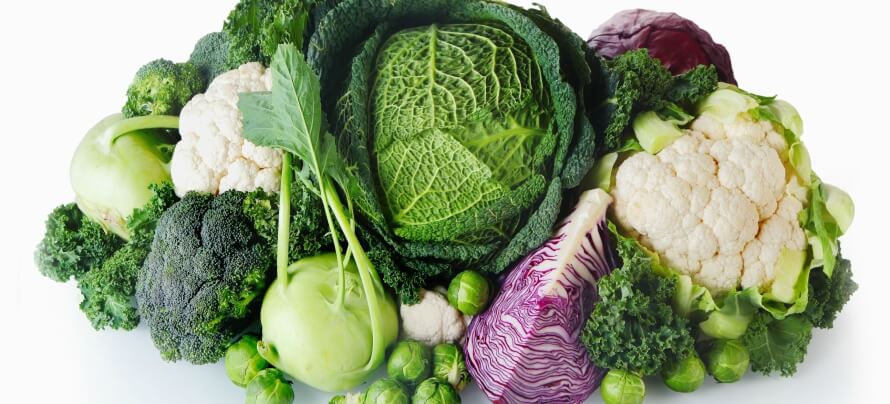
Cruciferous vegetables are a group of plants that belong to the brassicaceae family of plants, also known as the Cruciferae family which led to their name. Named initially because they tend to grow their petals in a cross shape, nowadays we only know of them because broccoli is one and everybody knows broccoli is healthy.
Yeah, I’m bitter; almost as bitter as cruciferous vegetables al dente.
They’re high in healthy compounds like magnesium, vitamin C, and have some nice fermentable soluble fiber sources but that’s not the reason why they are good in green supplements; we’re talking about those delicious, unique, amazing compounds.
Please welcome: Sulforaphane and the Isothiocyanates (ft. PEITC on drums) presenting their number one hit, “Actually promising (Goodbye Cancer, my old friend).”
Jokes aside, cruciferous sources here include the classic broccoli extract but also:
- Moringa oleifera (fairly good source of sulforaphane)
- Kale
- Cabbage and all its variants (like bok choy)
- Cauliflower
- Collards
- Watercress
And while spinach is not technically considered a cruciferous vegetable, it also deserves to be mentioned here since it shares the same bioactives we’re interested in.
Any greens supplement that provides these vegetables in decent doses (10 mg of sulforaphane and/or 50+ mg of combined isothiocyanates) gets a thumbs up.
Anyways, these compounds are heralded for their benefits mostly because of how they interact with antioxidant defenses and detoxification processes in the body. By putting them in your body your natural antioxidant enzymes (such as glutathione) and detoxification enzymes in your liver are supported.
While not doing much inherently, if you were to come across some manner of toxin (perhaps in the atmosphere, or in the food supply, or perhaps you just burnt the heck out of your meat) they can assist your body in removing the toxins to a better degree than your body normally could.
When you have a good dietary intake of isothiocyanates, from the vegetables or supplements, toxins and other foreign compounds are processed more efficiently and effectively.
While you are unlikely to see any benefits in the short term, this supposed “detoxification support” effect is thought to be quite cancer preventative in the long term.
Sulforaphane has an additional anti-cancer role, and some other benefits, potentially related to its role as an HDAC inhibitor and microRNA influence, but that’s a topic for another day. For now just understand both the isothiocyanate class and sulforaphane are things you would want to get in your body.
Cruciferous vegetables, in general, are among the best vegetables to get in a greens supplement secondary to the isothiocyanates and sulforaphane that they provide.
The Worst 3 Greens Supplements
While you can find almost any vegetable under the sun in a greens supplement, there are some that keep on making appearances despite having no major benefits. These compounds, which have little promise for helping the body to any degree, are more likely than not mere “filler.”
Hemp
Hemp is a term that refers to the plant cannabis sativa, which many people may know better as marijuana. The terms aren’t exactly interchangeable, though.
“Marijuana” refers to cannabis sativa that’s about to be consumed to get high, while hemp usually would refer to industrial use of the plant in textiles and such.
Of course, you could eat hemp if you want. It does indeed have nutrients and protein in it. Only one major problem though, due to regulations any hemp produced needs to be selectively bred to produce damn near no cannabinoids.
You know all the beneficial compounds in marijuana that underlie the antiinflammatory and potentially cognitive protecting effects? Yeah, they’re not in hemp. Nothing unique or interesting is in hemp, and the protein content isn’t even that impressive.
The only real reason hemp is used in some greens products is due to a low cost to include it and the association with marijuana giving it undeserved praise. It’s not completely useless as it provides some micronutrients, but it’s generally overhyped.
Non-Dark Leafy Greens
Ever heard somebody mocking lettuce for being “crunchy water”? Well, it’s sort of true when you look at the nutrition label. When it comes to micronutrition a lot of these lighter-colored leafies just don’t have much to them in terms of nutrients.
Here are some examples:
- Lettuce
- Swiss chard
- Endive
- Basil
Beyond the nutrition label they do contain some nitrates which are beneficial compounds for circulation. The thing is, though, that the dose is pretty variable (likely due to growing and processing of the vegetable) and nitrates are in literally every vegetable.
But they’re super cheap and are used as filler at times. They provide next to nothing to the body, and especially nothing unique like the cruciferous veggies provide isothiocyanates, and really have no place in a greens supplement.
If your greens supplement has “Lettuce” in it as one of the major players, buy another supplement.
Light color leafy vegetables, except for those that double dip into the cruciferous vegetables (ie. cabbages), only have their redeeming value in their taste and texture. When you take that away by making it a powder they become boring and useless low-nutrient options for a green supplement. Most likely filler.
Carrot
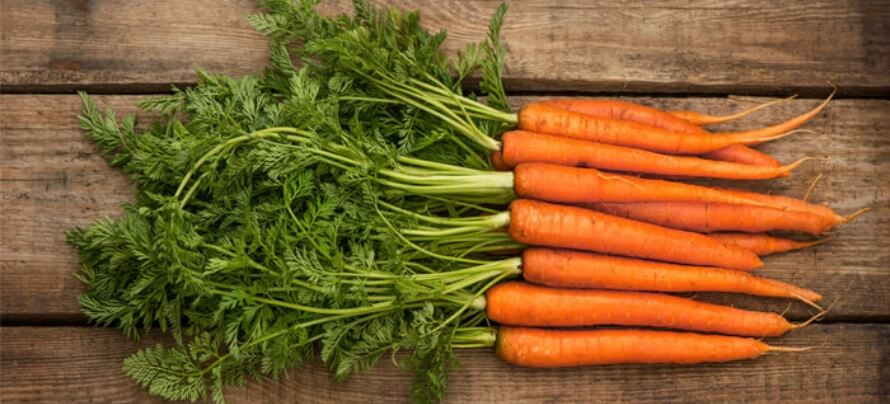
Carrot is a well-known source of provitamin A, otherwise known as beta-carotene, and that’s pretty much it. It can be delicious in stews and a versatile vegetable, but carrots have never been linked to any unique health claims (the only one being a WWII lie that they improved eyesight in the dark).
This lack of praise coincides with the scientific evidence on carrots which is lackluster because they have just never been interesting.
So, why do they show up in greens supplements with relatively high frequency? They aren’t even classified as a “superfood.”
Honestly, no clue. It’s not like we have a large database of carrot studies to fall back upon.
It’s most likely a financial reason, though. Carrots are dirt cheap, which is why you’ll sometimes see them as the first ingredient on many proprietary blends (which, as I’ve covered before, means it’s the main ingredient). It’s a good way to add bulk to greens supplements.
There’s absolutely nothing impressive about carrot, carrot extract, or carrot juices that set it apart from other vegetables. It’s just a vegetable that’s cheap and doesn’t taste bitter so more likely than not, it’s being used as filler.
Are Greens Supplements Safe?
Greens supplements are, on average, quite safe. They tend to include ingredients that are subject to more stringent regulations, so on the whole, you could say they’re safer than your average supplement.
Supplements that can double dip as food products tend to have more restrictions and regulations applied to them which, from a consumer point of view, is pretty nice. Extra levels of safety.
Plus, at the end of the day, they are fruits and vegetables. If the stuff added is stuff you would otherwise eat, they’re theoretically just as safe.
There are only a few issues where greens supplements could be a problem:
- When it comes to blue-green algae, know that spirulina is the only blue-green algae that is cleared for human consumption. The other algaes of this color classification are actually toxic and not fit for human consumption, and to confirm chlorella is a “green” algae rather than blue-green.
- As these products are rich in protein, nutrients, and trace carbohydrates, so it’s reasonable to assume that they spoil faster if not properly stored. Even if you have a habit of saying “Oh, it’s only a week past expiration, it should be fine,” this is probably the group of supplements you want to risk the least.
- The more exotic the compounds included the more it should be seen as a “dietary supplement” and less like a food product.
To elaborate on that last part, greens supplements are totally safe for pregnancy/lactation if everything on the label was a household vegetable that you would otherwise consume.
Putting in bioactive levels of spirulina, foreign mushrooms like reishi, and other potent compounds may make the issue of safety during pregnancy/lactation a bit more fuzzy. It’s why we cannot confidently say that Genesis is safe during pregnancy. There’s no evidence it isn’t, but there’s no evidence it is, either.
And if the company is only throwing in the fanciest sounding Tibetan Monk Acai Acai Camu Camu berry roots, then they probably don’t care about safety as much as you’d like.
Ultimately the more “basic” greens supplements are very safe, even for pregnancy and lactation. However, when they start to get more potent (as is the case with Genesis) they are still safe for most people but it may be prudent to not use it while pregnant or lactating.
What Should I Avoid When Buying Greens Supplements?
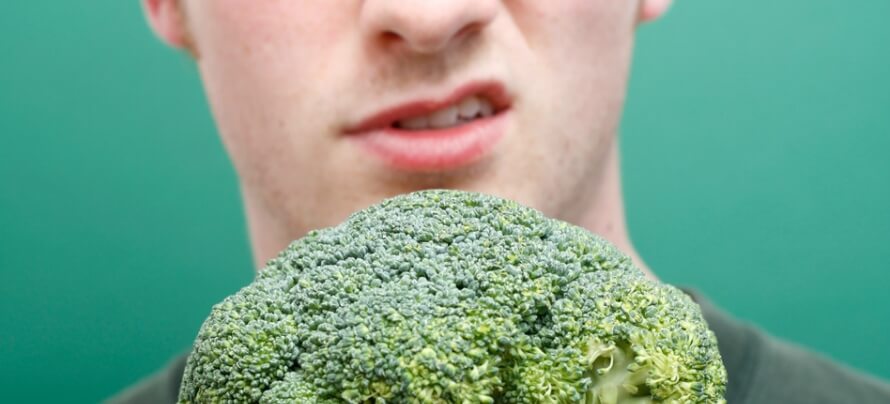
When buying a greens supplements you should look out for three main “warning signs”:
- Proprietary blends.
- Many ingredients instead of effective ingredients.
- Bad taste.
Let’s go over each.
Warning Sign #1
Proprietary Blends
Proprietary blends are the scum of the industry.
They’re legal ways to avoid disclosing how much of something you give in a product in a biological field where the dose means everything.
Honestly, I don’t personally buy anything with a proprietary blend on principle, but to each their own. At the very least, if you want to get a proprietary blend, pay heed to the following advice.
According to FDA regulations, the first ingredient in the blend must be the most prominent by weight. The second one the second most prominent, etc.
So the further down the list the ingredient you want is, the more likely the blend is using filler.
If you get a proprietary blend that starts with spirulina and cruciferous sources, that’s not as bad as it could be, but if that first ingredient is carrot or lettuce then… yeah… legally that one ingredient could be 99% of the entire product and you’d never know.
Trust me on this one. If a company says they’re using a proprietary blend to “protect their industry secrets and the hidden benefits of the certain ratios they use,” it’s absolute bullshit, especially when it comes to vegetables. There’s no hidden ratio of carrot to brussel sprouts, much like the word “obfuscation,” these blends are intentional obfuscation.
Warning Sign #2
Many Ingredients Instead of Effective Ingredients
Remember that, unless you’re fine with eating dehydrated kitchen scraps, there should be at least one thing in the product that’s backed by good science.
In other words, something you want to put in your mouth anyways and wouldn’t normally get in your diet to make your day to day life better.
For Genesis this is most likely spirulina, but Astragalus and reishi could also apply. The other stuff in the product? It’s not as eye-catching, but hey look at all the isothiocyanate sources.
If you get a product that has at least one major player in a good dose that’s both scientifically supported and, more importantly, actually has a serving size listed on the label, then that’s great.
If you look at the label and you don’t know what you’re getting or why you want the stuff, and are left more confused than before, then maybe pass it up. If the people who made the product can’t even do a decent job bragging about one ingredient, they they probably don’t have any grounds to brag about the other 30+ ingredients.
And seriously, there’s no damn reason for a vegetable supplement to have a list of over 20 to 30 different vegetable compounds and brag about a “more is better” approach to this stuff.
Regardless of how many plants are in there, a 20 gram serving is still 20 grams, and the more stuff you have to cram in there, the lower amount of any single ingredient you get. In other words, it’s much better to get a large dose or several highly effective ingredients than baby doses of 30 mediocre or useless ones.
Warning Sign #3
Bad Taste
Most greens supplements have to be taken in large doses.
That means that a) they’re usually powders that you can taste, and b) if they taste awful, you won’t keep taking them.
It’s a major reason why “superfruit” supplements came onto the scene. They may be less beneficial without some of the greens but, hey, they taste like a nice berry mix that pairs well with vanilla protein powder.
For greens supplements, check out user reviews and see what people think of the taste. If you’re reviewing a product yourself, don’t forget to mention whether or not it was a struggle to get it down! Such feedback is greatly appreciated (and something we take into consideration with Genesis which, honestly, tastes pretty good).
The Bottom Line on Greens Supplements
At the end of the day you don’t need greens supplements.
You can get all of the vitamins, minerals, and other micronutrients you need by eating a healthy diet.
Furthermore, you should never take a greens supplement “just because.” Don’t fall into the trap that leads so many people to take multivitamins without knowing why.
That said, if you’re restricting your calorie intake for weight loss, and want to patch any holes that might appear in your diet, or you just want to ensure that you’re doing everything you can to feel vibrant, stay healthy, and avoid disease, then a greens supplement may help.
Should you decide to take one, look at the label carefully. If it’s from a brand you trust and the ingredients tick all of the right boxes, then go ahead and buy it.
Many greens supplements prey on people who don’t question their worthless ingredients and products chock full of filler, so don’t be one of them.
If you’re looking for a greens supplement, that’s far more than just another boring blend of fruit and vegetable powders, then you want to try Genesis.
It’s a unique combination of greens, superfoods, adaptogens, herbs, and other phytonutrients that are proven to increase immunity, heart and circulatory health, energy levels, libido, mood, and more.
For example, it contains clinically effective doses of spirulina, reishi mushroom, moringa, and maca, as well as several others that confer a variety of desirable health and performance effects but aren’t exactly easy to work into your diet without supplementation.
Genesis is also naturally sweetened and flavored and contains no artificial food dyes, fillers, or other unnecessary junk.
So, if you want to be healthier, feel better, train harder, and increase immunity and longevity, then you want to try Genesis today.
Oh, and if you aren’t sure if Genesis is right for you or if another supplement might be a better fit for your budget, circumstances, and goals, then take the Legion Supplement Finder Quiz! In less than a minute, it’ll tell you exactly what supplements are right for you. Click here to check it out.
What’s your take on the best and worst greens supplements? Have anything else to share? Let me know in the comments below!
Scientific References +
- Bahadoran, Z., Mirmiran, P., Kabir, A., Azizi, F., & Ghasemi, A. (2017). The nitrate-independent blood pressure-lowering effect of beetroot juice: A systematic review and meta-analysis. In Advances in Nutrition (Vol. 8, Issue 6, pp. 830–838). American Society for Nutrition. https://doi.org/10.3945/an.117.016717
- Lim, K., See, Y. M., & Lee, J. (2017). A systematic review of the effectiveness of medical cannabis for psychiatric, movement and neurodegenerative disorders. In Clinical Psychopharmacology and Neuroscience (Vol. 15, Issue 4, pp. 301–312). Korean College of Neuropsychopharmacology. https://doi.org/10.9758/cpn.2017.15.4.301
- Ryz, N. R., Remillard, D. J., & Russo, E. B. (2017). Cannabis Roots: A Traditional Therapy with Future Potential for Treating Inflammation and Pain. Cannabis and Cannabinoid Research, 2(1), 210–216. https://doi.org/10.1089/can.2017.0028
- Callaway, J. C. (2004). Hempseed as a nutritional resource: An overview. Euphytica, 140(1–2), 65–72. https://doi.org/10.1007/s10681-004-4811-6
- Dacosta, C., & Bao, Y. (2017). The role of microRNAs in the chemopreventive activity of sulforaphane from cruciferous vegetables. In Nutrients (Vol. 9, Issue 8). MDPI AG. https://doi.org/10.3390/nu9080902
- Lernoux, M., Schnekenburger, M., Dicato, M., & Diederich, M. (2018). Anti-cancer effects of naturally derived compounds targeting histone deacetylase 6-related pathways. In Pharmacological Research (Vol. 129, pp. 337–356). Academic Press. https://doi.org/10.1016/j.phrs.2017.11.004
- Lee, I., Tran, M., Evans-Nguyen, T., Stickle, D., Kim, S., Han, J., Park, J. Y., & Yang, M. (2015). Detoxification of chlorella supplement on heterocyclic amines in korean young adults. Environmental Toxicology and Pharmacology, 39(1), 441–446. https://doi.org/10.1016/j.etap.2014.11.015
- Nakano, S., Takekoshi, H., & Nakano, M. (2007). Chlorella (Chlorella pyrenoidosa) supplementation decreases dioxin and increases immunoglobulin A concentrations in breast milk. Journal of Medicinal Food, 10(1), 134–142. https://doi.org/10.1089/jmf.2006.023
- Cingi, C., Conk-Dalay, M., Cakli, H., & Bal, C. (2008). The effects of spirulina on allergic rhinitis. European Archives of Oto-Rhino-Laryngology, 265(10), 1219–1223. https://doi.org/10.1007/s00405-008-0642-8
- Ferreira-Hermosillo, A., Torres-Duran, P. V., & Juarez-Oropeza, M. A. (2010). Hepatoprotective effects of Spirulina maxima in patients with non-alcoholic fatty liver disease: A case series. Journal of Medical Case Reports, 4. https://doi.org/10.1186/1752-1947-4-103
- Yakoot, M., & Salem, A. (2012). Spirulina platensis versus silymarin in the treatment of chronic hepatitis C virus infection. A pilot randomized, comparative clinical trial. BMC Gastroenterology, 12. https://doi.org/10.1186/1471-230X-12-32
- Nielsen, C. H., Balachandran, P., Christensen, O., Pugh, N. D., Tamta, H., Sufka, K. J., Wu, X., Walsted, A., Schjørring-Thyssen, M., Enevold, C., & Pasco, D. S. (2010). Enhancement of natural killer cell activity in healthy subjects by Immulina®, a Spirulina extract enriched for Braun-type lipoproteins. Planta Medica, 76(16), 1802–1808. https://doi.org/10.1055/s-0030-1250043
- Aune, D., Giovannucci, E., Boffetta, P., Fadnes, L. T., Keum, N. N., Norat, T., Greenwood, D. C., Riboli, E., Vatten, L. J., & Tonstad, S. (2017). Fruit and vegetable intake and the risk of cardiovascular disease, total cancer and all-cause mortality-A systematic review and dose-response meta-analysis of prospective studies. International Journal of Epidemiology, 46(3), 1029–1056. https://doi.org/10.1093/ije/dyw319
- Haftel, L., Berkovich, Z., & Reifen, R. (2015). Elevated milk β-carotene and lycopene after carrot and tomato paste supplementation. Nutrition, 31(3), 443–445. https://doi.org/10.1016/j.nut.2014.10.009










